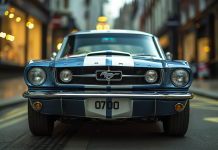When the time comes to start looking for a new car, the reality for most of us is that means dipping our toe into the ocean that is the UK’s gargantuan used car market. That then also means diving into a sea of typical considerations that come with buying a second-hand car – considerations that generally centre around what you can do to avoid buying an absolute banger.
One of the age-old used car buying debates comes in the form of whether you’re better off buying an older car with less miles on the clock or a newer model that’s seen more time on the roads. While there’s no absolute answer to that problem, there are a few comparison points to highlight that could help you lean one way over the other.
A matter of compromise
The first point to note, before we get to the older and less used versus newer but more used debate directly, is that every used car purchase comes with an element of compromise in mind. Most of us go used over new because we have budgetary limitations, so we’ve already compromised to some degree in that regard, but those limitations extend to your expectations when choosing you car and the features on it too.
Before you get to mileage and age factors, think about features you require on your next vehicle. Perhaps you need more space for family life, or hybrid/electric power for better economy. Whatever it is you’re looking for, the practical features you need to see on your vehicle should take precedence over our subject of debate today. Once you have found those features, you can move on to the new vs old question.
The case for the older car, lower mileage
So, what reasons are there to bag an older reg plate with less miles to its name? The main benefit lies in the wear and tear, or lack thereof, that you’re going to find on a lesser used vehicle. One of your biggest concerns when buying used should be the condition and longevity prospects of a car’s key components – expensive stuff you’d rather not replace like the clutch and brakes, for example.
In theory, a car with less miles on the clock should be in better condition under the bonnet. However, where an older used car is concerned, one could argue that the manner in which the car has been kept during its longer lifetime is just as important a factor. So, when you’re looking at a vehicle with remarkably low mileage for its age, you want to know what the car’s been up to while it’s not been on the roads, too.
If you have a vehicle in front of you with a good history behind it, then you’re onto a winner. The less recent year on the car should mean it’s notably cheaper than a newer equivalent, too.
The case for the newer car, higher mileage
A newer car, in spite of its more extensive use, offers you a newer design, which in turn means newer features, newer tech and potentially better, more durable parts. Thus, if it’s more modern features you’re after – perhaps certain driver assists or in-car tech – a newer car will naturally hold more appeal, regardless of its history.
Again, you want to consider more than just the production year and mileage number on the surface here. What’s the history of the vehicle? Is there a legitimate reason as to why it has more miles on the clock – say rental or lease car use (which usually means the car has been well maintained by the commercial owner)?
A newer car will probably hold better sell on value than an older counterpart – a very important factor for some buyers. That said, you’ll likely pay a bit more up front in that case, too.
The conclusion
Disappointed by the apparent lack of consensus when it comes to which way to go? Unfortunately, in the raffle that is buying used cars, you can find good and bad options on both side of the debate. While upfront cost, available features and wear and tear concerns will all play their part in your decision making, your real focus should lie in understanding the history of every vehicle you’re interested in. If you can get a proper understanding of how a vehicle’s been maintained, its full service and user history and learn why it’s done the mileage it’s done, you are giving yourself the best chance of securing a high-quality used car.
There will be cars that break the theoretical mould – higher mileage vehicles in better condition under the bonnet than lower mileage alternatives, and older cars that offer better longevity than newer ones. Your best bet for finding these outlier bargains is through in-depth research that goes beyond the usual what ifs and maybes of the original question. Hopefully, once you’ve read up on a car to the best of your ability, you’ll be able to make the right decision.









































